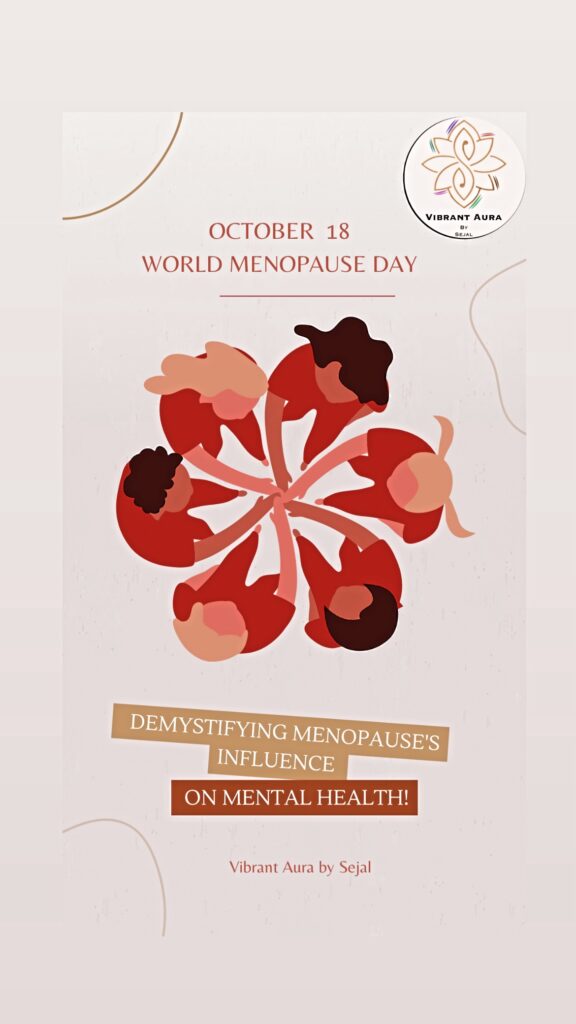
Demystifying Menopause’s Influence on Mental Health.
On this Menopause day lets us demystify the menopause’s influence on mental health.
What is Menopause?
It is a word that often brings to mind hot flashes, night sweats, and changes in reproductive health. But what about its less talked about, yet equally significant, impact on mental health? This blog delves into the uncharted territory of menopause and its effects on the mind.
The Hormonal Roller Coaster
Menopause is marked by hormonal changes, primarily the decline in oestrogen levels. These hormonal fluctuations can set off a rollercoaster of emotions. It’s not uncommon for women to experience mood swings, irritability, and increased anxiety during this phase.
Understanding Menopause-Related Depression
Depression is one of the more serious mental health issues that can arise during menopause. The hormonal shifts can make some women more susceptible to depressive symptoms. If you or someone you know is going through menopause and experiencing persistent sadness, loss of interest, or changes in appetite and sleep patterns, it’s crucial to seek help.
The Anxiety Factor
Anxiety can also rear its head during menopause. Many women report increased feelings of unease, nervousness, and even panic attacks. This can be linked to the hormonal changes and the life adjustments that come with menopause, such as children leaving the nest or career changes.
Coping Strategies
The good news is that there are ways to cope with these challenges. Here are some strategies to consider:
1. Stay Active: Regular exercise can help alleviate mood swings and boost overall mental well-being.
2. Healthy Diet: Eating a balanced diet rich in nutrients can support both physical and mental health.
3. Talk About It: Don’t suffer in silence. Reach out to friends, family, or a therapist to discuss your feelings.
4. Hormone Replacement Therapy (HRT): In some cases, HRT can help manage hormonal imbalances and reduce associated mental health symptoms. Discuss the pros and cons with your healthcare provider.
5. Mindfulness and Relaxation: Practices like meditation and deep breathing can help reduce stress and anxiety.
Menopause is a significant life transition that can affect both the body and the mind. It’s essential to recognize and address its impact on mental health. By seeking support, staying informed, and making lifestyle adjustments, women can navigate this phase with greater ease and well-being. Remember, you’re not alone in this journey, and there are resources available to help you thrive during and after menopause.
For further assistance or counselling do connect with Vibrant Aura by Sejal.
Thank you so much for sharing its must for every women
Thanks for the great understanding and Support 💗✨
Thanks for Sharing …it’s really helpful for all of us …way to go what you doing for society…hats of to you…
Thanks a lot, Shalini we all are privileged enough that we can give back to society and we are just doing the same ✨🙏🏻
Thank you for tackling the taboo topics and normalizing conversations around menopause. It’s so important and much appreciated!
Agree completely. Thanks for being so generous with your words. 👍🏻
Thanks for highlighting it more with your generous words. ✨
Nice one Sejal..
Thanks a lot Pooja ✨🙏🏻